Rethinking Your Social Media Experience
Is the ban of TikTok the signal for you to rethink your social media habits? Why not?

Today began the "Post TikTok" era, an era that could last "forever," or could last as long as it takes for President Trump to get concessions from China and Congress to change the law. I won't lay odds on either, but this is a fantastic time to evaluate your current social media presence and consider some changes.
Government Spying or Corporate Tracking - There's No Meaningful Difference
The official story for why TikTok was banned was concern over the Chinese government having access to the data humble Americans post on the platform. Not just what they mean to post publicly, but what they try to post to private groups, as well as all the metadata about where they posted from, when, etc. I'll happily agree, this is a potential issue.
Overlooked in this concern is that with American owned social media platforms all this data and more is actively sold in the name of advertising revenue. Yet somehow this isn't a big enough issue for congress to address. Social media companies routinely share this same data with US law enforcement and government agencies, sometimes through the subpoena process and sometimes through commercial transactions.
You may feel that it is "OK" for this data to be made available to one government and not another. I'm not particularly excited about either getting that data outside of due process when absolutely necessary. I'm also extremely unhappy with the idea of companies and corporations purchasing this data about me for whatever purposes they want it for.
This Ban Pushes Users Back to META, YouTube, and TwiXer
This is the easy path. You probably already have accounts on at lest one of these platforms. Each has, in its own way, tried to capture the magic of TikTok, but apparently they've provided too little too late to organically capture TikTok users. This ban represents an artificial way for them to grow their user base and their advertising revenue through displaced TikTok users. Not through having built a better platform, but through protectionist government intervention - done for good reasons or not.
This means more advertising opportunities and more sale of personal information between corporations and companies.
Rethinking Personal Communication
Contrary to what you may believe, social media is not a mechanism for private communication. It's right there in the name, social media. Private communication requires solutions that are private and secure. Separate your personal communication and private coms from social media. This includes a lot of things, depending on your personal risk concerns:
- Photos of friends and family members without their express permission
- Phone numbers, physical addresses, and the like
- Photos of your home, vehicles, especially those with street numbers or license plates
- Health information, yours and other peoples
Move those to tools such as Signal, encrypted email, and other security focused solutions. There's no reason the corporate owners of social media sites and their business partners need to know any of this, is there?
Algorithms Pushing Agendas
Each of the major social media sites have a "feature" that shares posts with you based on the solution's programming. This is intended to keep you interacting with the platform. (Anybody old enough to remember when Facebook only showed you people you followed, and only showed you their posts in chronological order remembers what these sites were like before those algorithms)
This engagement is intended to continue to both refine their understanding of your likes and dislikes for the purpose of better honing advertising focused on you, as well as to keep you engaged more and longer. They have to do that because of how their funding model works - they get money by serving you paid content and ads.
Take Ownership of Your Social Media
Believe it or not, there are good alternatives to corporate owned social media. What was immature a few years ago has become a robust infrastructure of decentralized social media capabilities mirroring the experiences available on Twitter, Facebook, Instagram, and YouTube but without the corporate ownership and advertising surveillance by default. Here's a quick list:
- Mastodon - this is a micro-blogging solution (think Twitter from the old days).
- Pixelfed - This is the photo sharing solution (think Instagram).
- PeerTube - Share your videos via this solution (YouTube, but without all the "Googleness")
- Frendica - Build your groups for "private" conversations and share with specific groups (think Facebook - micro blogging but with access control choices so you can post to only your friends and connections)
Each of these solutions is part of the "Fediverse," utilizing the ActivityPub protocol to allow interoperability between different instances of their solutions, and even across different solutions (seeing Pixelfed content on Mastodon, etc.). They're also all built on the following principles:
- Decentralized - there is no single central owner/manager of these app instances. You can run your own Mastodon server if you want, and federate it with all (or some) of the others.
- No content algorithms - you get to choose what content you follow, search for (and create feeds based on) hashtags, or just focus on posts from others on your own instance, in chronological order.
- Donation baaed revenue - there's no advertising, no paid way to make sure everyone sees my post, etc.
- Open Source - you can review the code and verify all this stuff yourself.
- When you delete something it really deletes - unlike corporate social media that keeps your data even after you delete something because they consider it their property - unless you happen to be covered by something like GDPR and make a deletion request through that process. (here in the US, GDPR doesn't cover us citizens)
- Content Moderation - content moderation is the responsibility of the instance owner, so if you want to find an instance where "adult content" is allowed throughout you can. If you prefer an instance where anything disparaging against, say, solar power, you can find one - or make one! (Though if you choose to make one, you might want to check on this primer on the legal requirements you may be subject to)
None of this means that these social media solutions are "private." They all recommend you use them as if you're creating public posts.
There's a good primer on these services in an article on The Verge.
Now go forth and social however you want, but with the knowledge of what you're doing and who else is using your content.

